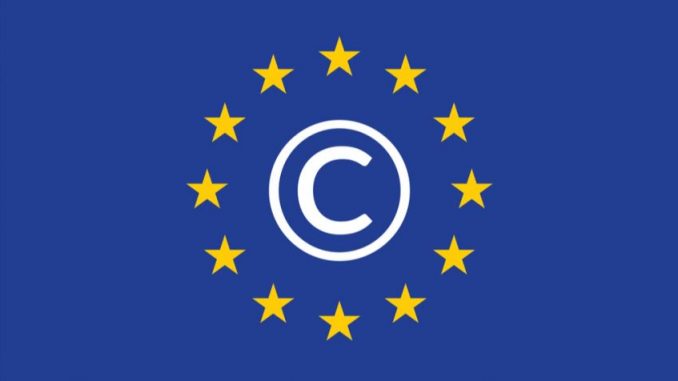
Casey McShea, Staff Writer |
The European Parliament passed Article 13 on March 29—the first change to the European Union (EU)’s copyright rules in almost two decades.
The article, entitled “The European Union Directive on Copyright in the Digital Single Market,” could have major impacts on online users and is widely controversial.
The directive, more widely known as Article 13, is designed to limit how copyrighted material is shared on online platforms. The directive requires online platforms to filter or remove copyrighted material from their websites. Many people are concerned with how this will affect online creators and are saying the directive will “kill memes” and have dubbed it the “meme ban.” The article directly states that “online content sharing service providers and right holders shall cooperate in good faith in order to ensure that unauthorized protected works or other subject matter are not available on their services.” This basically means that user-generated-content-filled websites, such as YouTube, Facebook, Twitter, and Tumblr, are responsible for taking down any creator content if it infringes on copyright.
This, in turn, may eventually lead to systems that filter through content and automatically decide what is infringing on copyright and what is not. Systems like these are unpopular because they have been known to often make mistakes and take down creators’ content when they are not actually in violation of anything. A system similar to this idea is YouTube’s Content ID, which uses an algorithm to detect and remove copyright violations and allow creators to block already-live videos or monetize them by running advertisements against them. The system is very unpopular among many site users; however, because it is open to abuse, a new filtering system may actually make things worse by preventing possible false positives from being uploaded at all.
Even tech giants such as Google and Twitter have spoken out against the directive, worried that the new reforms will do more harm than good. Google argued that the new law will “hurt Europe’s creative and digital economies,” while Twitter said it is concerned about the potential impact on the “open, creative, and conversational nature of the internet.”
Amidst the controversy of Article 13, United Kingdom lawmakers and Britain Prime Minister Theresa May are still in a battle regarding Brexit. Last Friday, March 29, Parliament rejected May’s plan to withdraw from the EU for the third time. The vote on whether the U.K. should leave the EU was held and passed on June 23, 2016, but the actual exit was due to take place on March 29, 2019. Due to undecided negotiations and deals regarding how the U.K. leaves, the EU postponed this date to April 12.
The agreement that lays out the details of the U.K.’s exit is called the Withdrawal Agreement. This agreement states how much money the U.K. will have to pay the EU in order to break its partnership, what will happen to U.K. citizens living elsewhere in the EU and EU citizens living in the U.K., and how to avoid the return of a physical border between Northern Ireland and the Republic of Ireland, as only Northern Ireland is a part of the U.K.
The U.K. will definitely leave the EU on April 12. What is still unknown, however, is how the transition period will work after that happens. If the U.K. and other EU countries do not come to an agreement by the withdrawal date, there would be no transition period, meaning EU laws would stop applying to the U.K. immediately and businesses will be forced to quickly adjust.
Leave a Reply